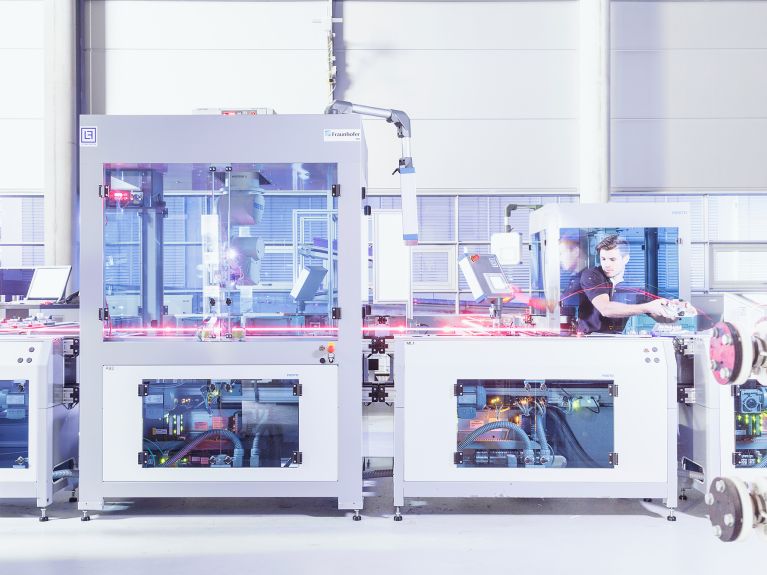Industry 4.0 – explained in simple terms
What does Industry 4.0 mean? What can the new technology do? What progress has Germany made? An expert gives five easily understandable answers.

Already, one in four machines in Germany are networked. But what does that mean? Daniel Stock, an expert at the Fraunhofer Institute for Manufacturing Engineering and Automation (IPA) in Stuttgart, explains the complex subject of Industry 4.0.

Where does the term ‘Industry 4.0’ come from?
Industry 4.0 was originally the name of a Federal Government project to promote digitization in manufacturing. It has since become accepted as a general term for networked, digitized production: machines and products are seen as networked and intelligent components that can exchange data locally, globally and among companies. The idea is to achieve unprecedented transparency and flexibility.
What challenges are there on the road to Industry 4.0?
Industry 4.0 involves technical, organizational, legal and societal challenges which often interact with each other. The aim is to make machines more intelligent, but how much should a machine or a service decide for itself? What role do humans play here? What is the informational basis on which decisions are made? And who is liable in the event of faults or damage?
For many small and medium-sized enterprises, it’s a challenge to assemble the necessary resources and skills in information and communication technology. Overall, there is a lack of qualified professionals.
What role does Fraunhofer IPA play?
Fraunhofer IPA supports companies in research, development and implementation in areas ranging from individual solutions to IT production architectures to holistic corporate strategies. Issues include sensors and machines on the factory floor, the digital factory, intelligent production planning, cognitive robots, digital tools and smart services in cloud-edge platforms.
What are the benefits of Industry 4.0?
Industry 4.0 is designed both to reduce error rates at work and to boost efficiency and productivity by merging a wide range of issues in information/communication technology and production. This can ensure that Germany remains competitive as an industrial location. Most companies expect Industry 4.0 to ease the physical burden on employees in production. Furthermore, products are designed more intelligently to pave the way for new business models based on digital services.
How much progress have German companies made by international comparison?
Since there is no standardized definition of Industry 4.0, there are no absolute figures on adaptation. Internationally, Germany certainly ranks among the top three countries alongside Japan and the USA.
Various studies, for example by the digital association Bitkom, measure the extent to which companies concern themselves with Industry 4.0. Larger companies already invest a lot of resources in this area, and more and more smaller companies are adapting solutions or have an overall strategy. One in four machines are networked. About half of German companies are already using special applications for Industry 4.0, just under a quarter are planning to use them.
